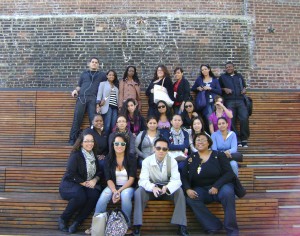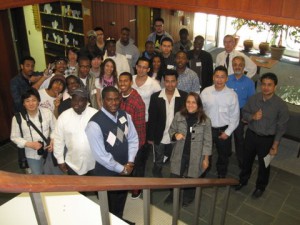The knotty issue of gentrification is one of many issues that students address in Professor Susan Phillip’s upper level Urban Tourism course (HMGT 4987) in the Department of Hospitality Management. Field trips around New York City are incorporated into the course that investigates tourism as an engine of urban renewal and economic regeneration. Class lectures, discussion, and research projects let students examine the roles of government, business, and community along with issues of development, environmental concerns, and social equity.
Following lectures on historical Brooklyn, students observe first hand the contrast of two neighborhoods in guided tours of Bedford-Stuyvesant and Brooklyn Heights. Students broaden their place-based experience with research projects that identify tourism resources and media perception of Brooklyn neighborhoods, in which they evaluate the roles of public and private sectors in urban tourism and in the revitalization of less affluent neighborhoods. Professor Phillip’s emphasis on helping students connect to the history of social change of local neighborhoods aligns with many General Education objectives that highlight ethics in learning and civic engagement. During field trips, residents have been known to interact with her class, pointing out local spots, recounting local lore, and even inviting the group into their residence. One group assignment is the development of a walking tour. You can see an example of a student walking tour of Downtown Brooklyn here: HMGT 4987 Student Downtown Brooklyn Walking Tour





